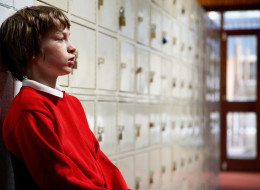 It’s been said that the only things we really “learn” are the things we learn for ourselves. It’s when we learn something for ourselves that it becomes intrinsic to us. We just naturally do what it is we’ve learned, without having to be urged to do it or disciplined into doing it.
It’s been said that the only things we really “learn” are the things we learn for ourselves. It’s when we learn something for ourselves that it becomes intrinsic to us. We just naturally do what it is we’ve learned, without having to be urged to do it or disciplined into doing it.
So, when our children engage in less-than-desirable behavior, how are they to learn? Well, if they are to learn for themselves, it can’t be because we impose the lesson on them. Imposing a “lesson” on children is the opposite of them learning for themselves. Like ourselves as adults, our children learn best from consequences. What they don’t learn from is punishment.
Does that surprise you? It might, if you have imagined that punishment — often referred to as “discipline” — is the same as consequences.
As a clinical psychologist whose focus is children and their families, I often hear parents and teachers say something like, “I will have to give you a consequence for what you did.” Give a consequence? That’s a non sequitur.
Consequences and punishment are fundamentally different. Punishment, or discipline as many call it, is something we impose. In contrast, consequences flow spontaneously from the situation without us having to “think up” something. That’s because consequences have to do with cause and effect.
Cause and effect are a natural process — a sequence, in which an action brings a spontaneous result. Then the situation itself, not the parent, becomes the teacher. In this way children learn for themselves.
When I share this insight with parents, most of them are surprised. But the simple fact is that when we intervene to impose some form of discipline, we intercept the teaching that comes from allowing simple cause and effect to do its important work.
Let me say it very clearly: Cause and effect are fundamentally different from a child doing something, and the parent (or school) giving them a “consequence.” That’s not a consequence at all, but a punishment. The result of this is that our children don’t learn a valuable lesson. Instead, the result is that they resent us. And resentment leads to further acting out on the child’s part.
A child may tow the line for a time when we punish them, but what they don’t do is develop their own sense of why they should behave in a responsible manner. Even if we succeed in suppressing one form of acting out, the resentment toward us will come out in some other way.
When children aren’t allowed to learn from the natural consequences of their behavior, they don’t develop the ability to direct their lives from their own center of gravity. It’s for this reason that peers — especially a boyfriend or girlfriend — are so easily able to influence our children, especially as they gain greater freedom in their teens.
It’s also for this reason that we have to continually “stay on” our children over things. They haven’t learn it for themselves, and so we have to keep after them to get them to do or not do something.
Children who develop their own “knowing,” their own center of gravity, don’t constantly need to be pulled in line.
Of course, helping our children develop this “knowing” takes time and inordinate patience. It requires that we parents step back and allow for the natural consequence to kick in. Most of the time, we are too anxious or too harried to allow the space for this. As a result, we lose opportunity after opportunity to help our children learn from life’s lessons.
It is our own anxieties and lack of inner (and outer) spaciousness that causes us to impose lessons via punishments on our children. It is so much easier to control the situation rather than allow the situation to teach our children at its own pace and in its own way. Our anxiety to control everything turns out to be the very thing that spins everything out of control.
This topic is vastly discussed in my latest book, aptly titled, Out of Control: Why Disciplining Your Child Doesn’t Work and What Will.
To view the movie trailer of this groundbreaking book, click here:?http://player.vimeo.com/video/82232108



